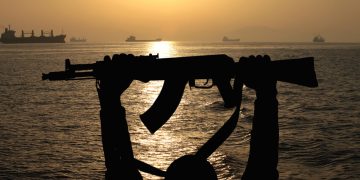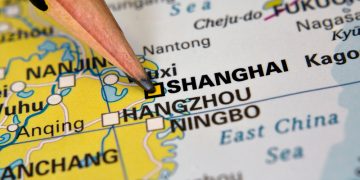The Global Centre for Maritime Decarbonisation (GCMD) has issued publication a on developing competency standards for shipboard and shoreside personnel involved in the safe handling, storage, and offloading of captured Liquid Carbon Dioxide (LCO2).
The GCMD report addresses the critical aspect of ensuring the safe handling of captured Liquid Carbon Dioxide (LCO2) onboard ships and during offloading operations. It recognizes the significant challenge of developing competent personnel to manage LCO2, a substance that requires specialized knowledge and training due to its physical and safety characteristics.
The report introduces two competency frameworks to guide the development of LCO2 handling standards. The first framework, “Proposed Competencies for Handling Captured Liquid CO2 Onboard Ships,” outlines the necessary qualifications and competencies for shipboard personnel. It builds on existing International Maritime Organization (IMO) regulations, particularly the International Convention on Standards of Training, Certification and Watchkeeping for Seafarers (STCW) and the International Code of Safety for Ships Using Gases or Other Low-Flashpoint Fuels (IGF Code). This framework provides a structured approach for training seafarers in the safe handling of LCO2, detailing both basic and advanced training levels. It specifies the required knowledge, proficiency, evaluation methods, and criteria for assessing competency.
The second framework, “LCO2 Handling Competency Information – Shipboard and Shoreside Personnel,” complements the first by expanding the competency requirements to include shoreside personnel. This framework covers a broad spectrum of roles involved in LCO2 operations, from terminal operators and port authorities to marine company support personnel and emergency responders.
The importance of training
Every candidate for certification in basic training for handling captured LCO2 onboard ships shall:
- have successfully completed the approved basic training as required, in accordance with their capacity, duties, and responsibilities;
- provide evidence that the required standard of competence has been achieved in accordance with the methods and the criteria for evaluating competence; or
- have received appropriate training and certification according to the requirements for service on liquefied gas tankers, except for the requirements regarding firefighting and flammable products.
Every candidate for a certificate in advanced training for handling captured LCO2 onboard ships shall:
- have successfully completed the approved advanced training as required in accordance with their capacity, duties, and responsibilities;
- provide evidence that the required standard of competence has been achieved in accordance with the methods and the criteria for evaluating competence; or
- have received appropriate training and certification according to the requirements for service on liquefied gas tankers, except for the requirements regarding firefighting and flammable products.
The goal is to ensure that personnel achieve the necessary competency levels to safely manage LCO2 in shipboard and shoreside operations, thereby reducing risks and enhancing operational safety in this emerging field of maritime decarbonisation.
The report has been extracted from the Concept study to offload onboard captured CO₂ study, originally published in March 2024.






























































